National Women’s History Month
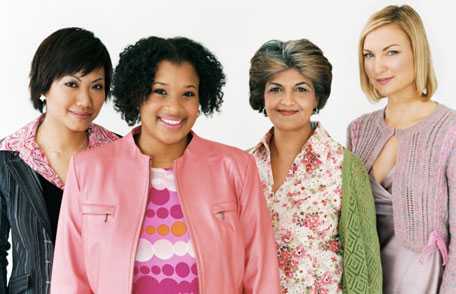 She's your friend, sister, wife, mother, daughter, neighbor, or co-worker, and she has a story to tell. March is National Women's History Month and the 2015 theme is Weaving the Stories of Women's Lives.
She's your friend, sister, wife, mother, daughter, neighbor, or co-worker, and she has a story to tell. March is National Women's History Month and the 2015 theme is Weaving the Stories of Women's Lives.
Women share their personal health journeys, challenges, and triumphs to help you better understand what you can do to improve your health. Improving health is the focus of many staff at CDC. Several female staff in STEM careers share how they work to make the world a safer and healthier place through diverse career opportunities at CDC.
Sharing Their Stories
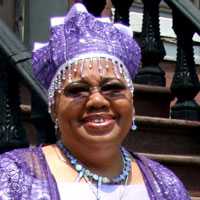
Brenda
Brenda's Cancer Survivor Story
Brenda had fibroids for years, but it was abnormal bleeding that led her to see a doctor, where she learned that she had cancer. She encourages women to listen to their bodies.
Brenda had fibroids for years, but it was abnormal bleeding that led her to see a doctor, where she learned that she had cancer. She encourages women to listen to their bodies.
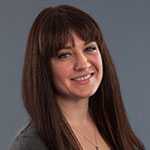
Amanda
Amanda's Story
Amanda, age 30, began smoking in fifth grade. She smoked during pregnancy, and her baby was born 2 months early. Her tiny girl spent weeks in an incubator. Amanda hopes that sharing her story will help other people quit smoking.
Amanda, age 30, began smoking in fifth grade. She smoked during pregnancy, and her baby was born 2 months early. Her tiny girl spent weeks in an incubator. Amanda hopes that sharing her story will help other people quit smoking.
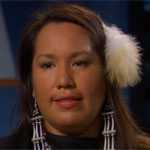
Shana
Shana'a Story: Let's Stop HIV Together
Shana shares the story of her diagnosis when she was only 22 years old, in college and dealing with the end of a difficult relationship. Shana and her husband Bear discuss how love, treatment, and knowledge helped them fight HIV together, and share their story.
Shana shares the story of her diagnosis when she was only 22 years old, in college and dealing with the end of a difficult relationship. Shana and her husband Bear discuss how love, treatment, and knowledge helped them fight HIV together, and share their story.
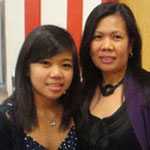
Faith & Rosalie
Rosalie and Faith's TB story
Rosalie's daughter Faith was first diagnosed with TB at the age of 5 and again when she was 12. After being hospitalized several times and taking TB medication for 9 months, Faith is now cured of TB disease. Rosalie wants everyone to know that TB can happen to anyone.
Rosalie's daughter Faith was first diagnosed with TB at the age of 5 and again when she was 12. After being hospitalized several times and taking TB medication for 9 months, Faith is now cured of TB disease. Rosalie wants everyone to know that TB can happen to anyone.
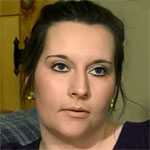
Kacie
Women and Bleeding Disorders: Living with von Willebrand Disease
Meet three women and hear about their experiences living with von Willebrand Disease (VWD). Learn about the signs and symptoms of VWD and why it's important to seek help with any questions or concerns about abnormal bleeding. They want you to know that there is help available.
Meet three women and hear about their experiences living with von Willebrand Disease (VWD). Learn about the signs and symptoms of VWD and why it's important to seek help with any questions or concerns about abnormal bleeding. They want you to know that there is help available.
Keeping the World Safe and Healthy
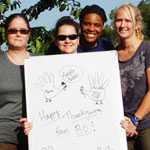
Team 5
CDC's Disease Detectives Respond to the 2014 Ebola Outbreak: Team 5
What made CDC's Bio Lab Team 5 different wasn't that it was the first and only all-woman team to run CDC's Ebola testing lab in the heart of the Sierra Leone epidemic – it was that they set records for the most Ebola samples processed in one day (162), the most samples tested in 21 days (2,012), and the most samples tested in 28 days (about 2,700). Learn about Brandy, Tara, Aridth, and Angie's experience.
What made CDC's Bio Lab Team 5 different wasn't that it was the first and only all-woman team to run CDC's Ebola testing lab in the heart of the Sierra Leone epidemic – it was that they set records for the most Ebola samples processed in one day (162), the most samples tested in 21 days (2,012), and the most samples tested in 28 days (about 2,700). Learn about Brandy, Tara, Aridth, and Angie's experience.
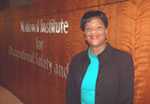
Christine Branche, PhD
Distinguished Service Award Presented to Christine Branche, PhD
The International Safety Equipment Association presented their prestigious Robert B. Hurley Distinguished Service Award in 2014 to Christine Branche, PhD, Principal Associate Director and the Director of the Office of Construction Safety and Health for CDC's National Institute for Occupational Safety and Health (NIOSH), for her significant contributions to the advancement and promotion of workplace safety and health.
The International Safety Equipment Association presented their prestigious Robert B. Hurley Distinguished Service Award in 2014 to Christine Branche, PhD, Principal Associate Director and the Director of the Office of Construction Safety and Health for CDC's National Institute for Occupational Safety and Health (NIOSH), for her significant contributions to the advancement and promotion of workplace safety and health.
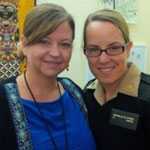
Hynes & Dynes
Implications of Latrines on Women's and Girls' Safety
Michelle Hynes and Michelle Dynes are epidemiologists in CDC's Emergency Response and Recovery Branch. Dr. Hynes and Dr. Dynes are involved in public health activities linking the safety of women and girls to the locations and privacy of latrines in humanitarian settings.
Michelle Hynes and Michelle Dynes are epidemiologists in CDC's Emergency Response and Recovery Branch. Dr. Hynes and Dr. Dynes are involved in public health activities linking the safety of women and girls to the locations and privacy of latrines in humanitarian settings.
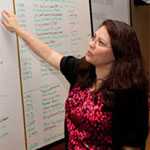
Gabrielle
CDC Responds to the 2014 Ebola Outbreak: Gabrielle
Gabrielle's career in public health began in grade school. As a type one diabetic she was often teased by classmates who didn't understand her disease. To help her situation, her parents and school nurse decided she should teach a health education class on type-one diabetes. She says, "After that the teasing stopped, everyone wanted to be my friend because I got to stand at the front of the classroom. That started my career!" She used those same skills to teach travelers, airport workers and border security agents about the Ebola outbreak in West Africa.
Gabrielle's career in public health began in grade school. As a type one diabetic she was often teased by classmates who didn't understand her disease. To help her situation, her parents and school nurse decided she should teach a health education class on type-one diabetes. She says, "After that the teasing stopped, everyone wanted to be my friend because I got to stand at the front of the classroom. That started my career!" She used those same skills to teach travelers, airport workers and border security agents about the Ebola outbreak in West Africa.
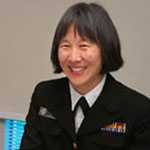
Denise Koo
CDC Women in STEM Careers: Denise Koo
Denise Koo came from a family of scientists who were also high achievers. Toward the end of her first year of medical school, she took a class in epidemiology (the study of the cause of disease in a group of people)—and realized she had found her niche.
Denise Koo came from a family of scientists who were also high achievers. Toward the end of her first year of medical school, she took a class in epidemiology (the study of the cause of disease in a group of people)—and realized she had found her niche.
More Information
More Information
- CDC Women in STEM Careers
- Science Speaks: A Focus on NIOSH Women in Science
- Women's Health
- Most Common Jobs at CDC
- Disease Detectives
- The Value of Public Health
- CDC Works For You 24/7 Blog
- David J. Sencer CDC Museum
- Solve the Outbreak App
- ABCs to Public Health: Laboratory Science for Teachers and Students
- Page last reviewed: March 9, 2015
- Page last updated: March 9, 2015
- Content source:
- CDC Office of Women's Health
- Page maintained by: Office of the Associate Director for Communication, Digital Media Branch, Division of Public Affairs




 ShareCompartir
ShareCompartir